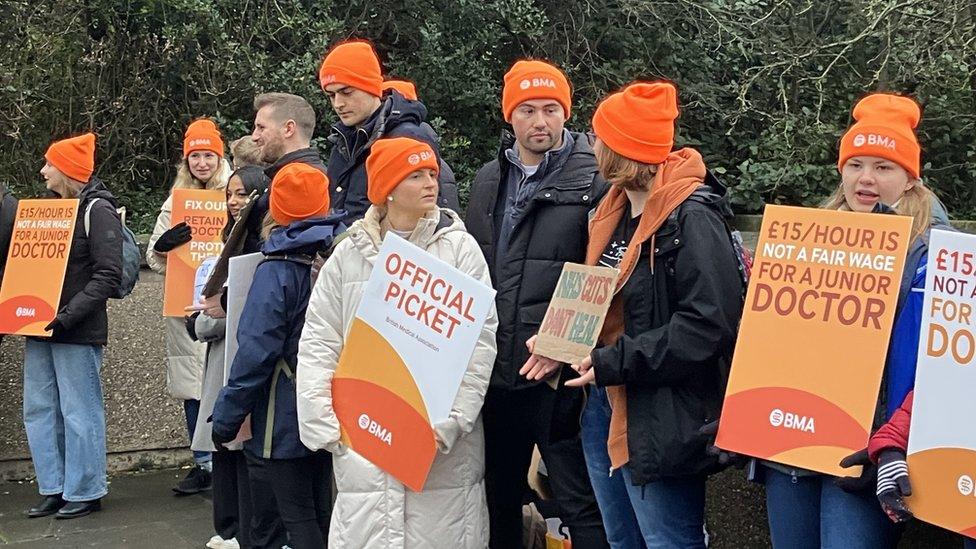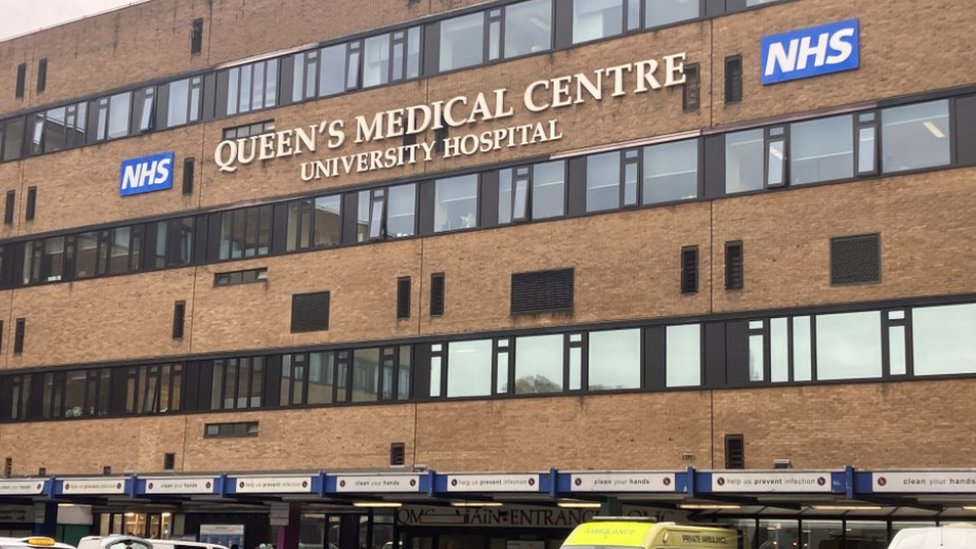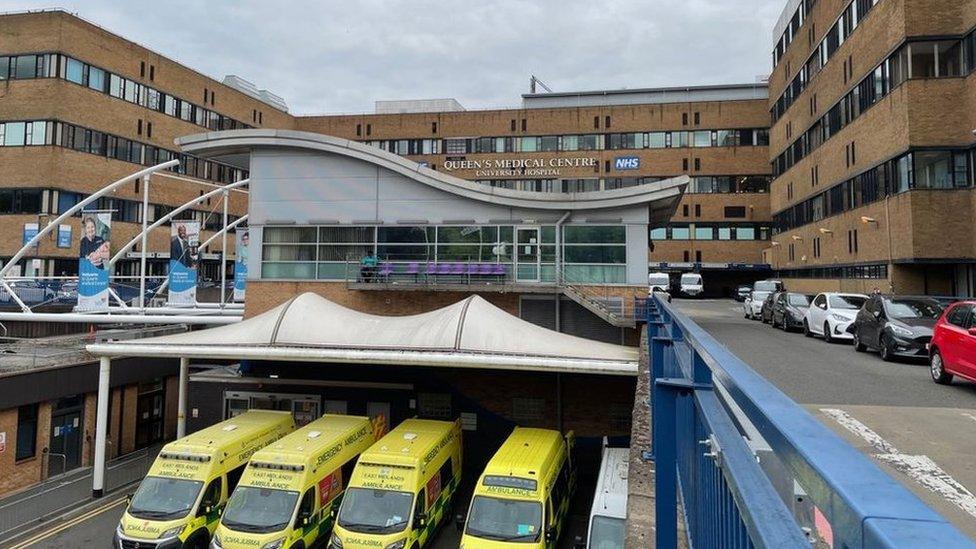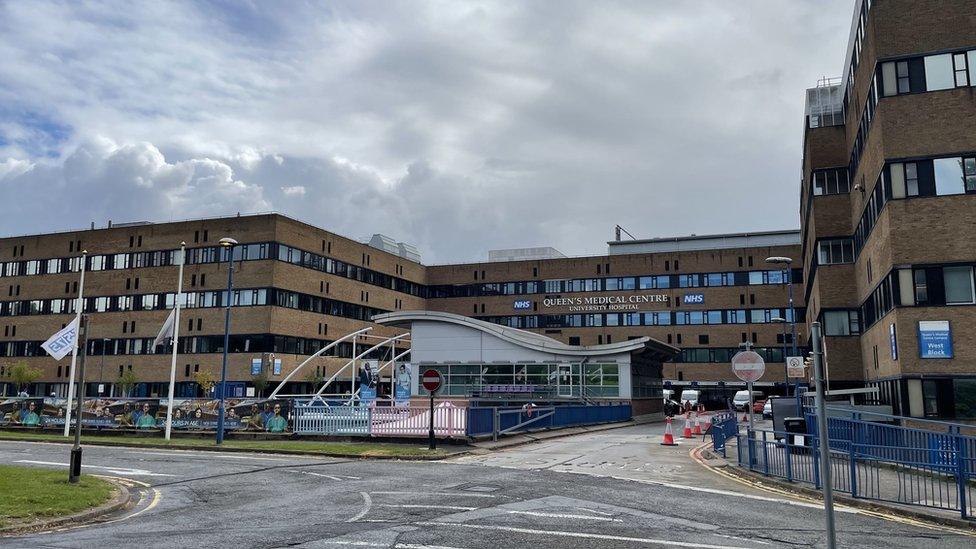Nottinghamshire NHS under 'severe pressure' despite strikes ending
- Published

Junior doctors started strike action at 07:00 GMT on 3 January
A critical incident covering the NHS in Nottinghamshire remains in place, despite doctors strikes ending.
It was first declared on 3 January, hours after junior doctors started six days of strike action over pay.
Bosses said the high number of people needing care, combined with the reduction in staff, had led to "very long waits".
It was confirmed on Tuesday that the critical incident would continue, even with improved staffing levels.
The critical incident stayed in place over the weekend, although bosses said the hospitals were "stabilising".
The Nottingham and Nottinghamshire Integrated Care Board (ICB) said the system remained under "severe pressure".

Health bosses have urged patients to only use A&E if you have a life-threatening illness or cannot be treated elsewhere
A spokesperson said: "We are not yet in a position to remove the critical incident status. The increased demand is due to a number of factors, particularly the number of people presenting with seasonal and respiratory illnesses such as flu and Covid.
"Declaring a critical incident has enabled NHS organisations in Nottingham and Nottinghamshire to work even closer together by sharing resources, spreading demand more evenly and appropriately across different services and closer collaboration with social care colleagues to speed up discharges.
"This is helping to significantly reduce the impact of staff shortages and additional demand we have been experiencing."

Follow BBC East Midlands on Facebook, external, on X, external, or on Instagram, external. Send your story ideas to eastmidsnews@bbc.co.uk, external.
Related topics
- Published6 January 2024

- Published3 January 2024
